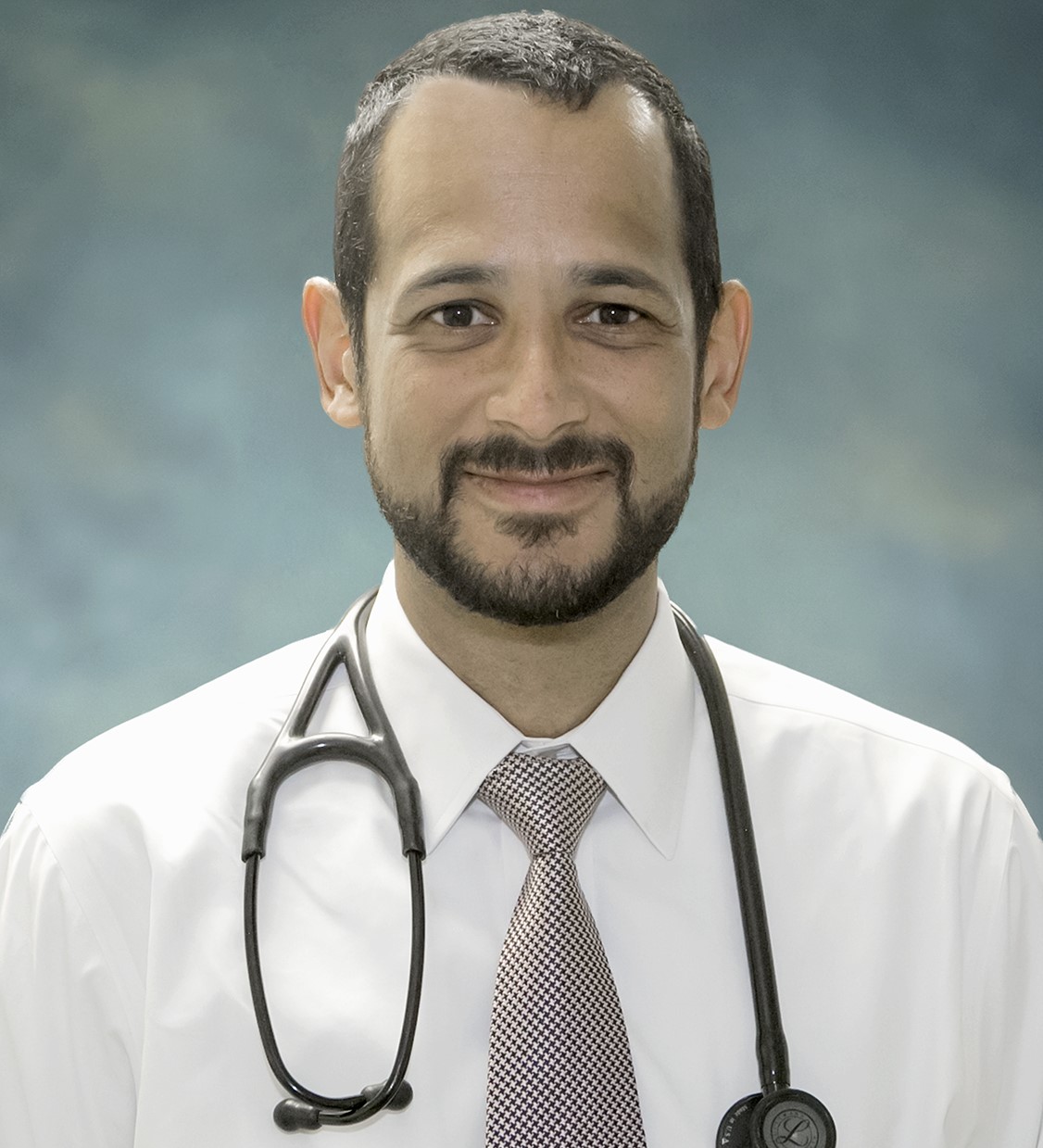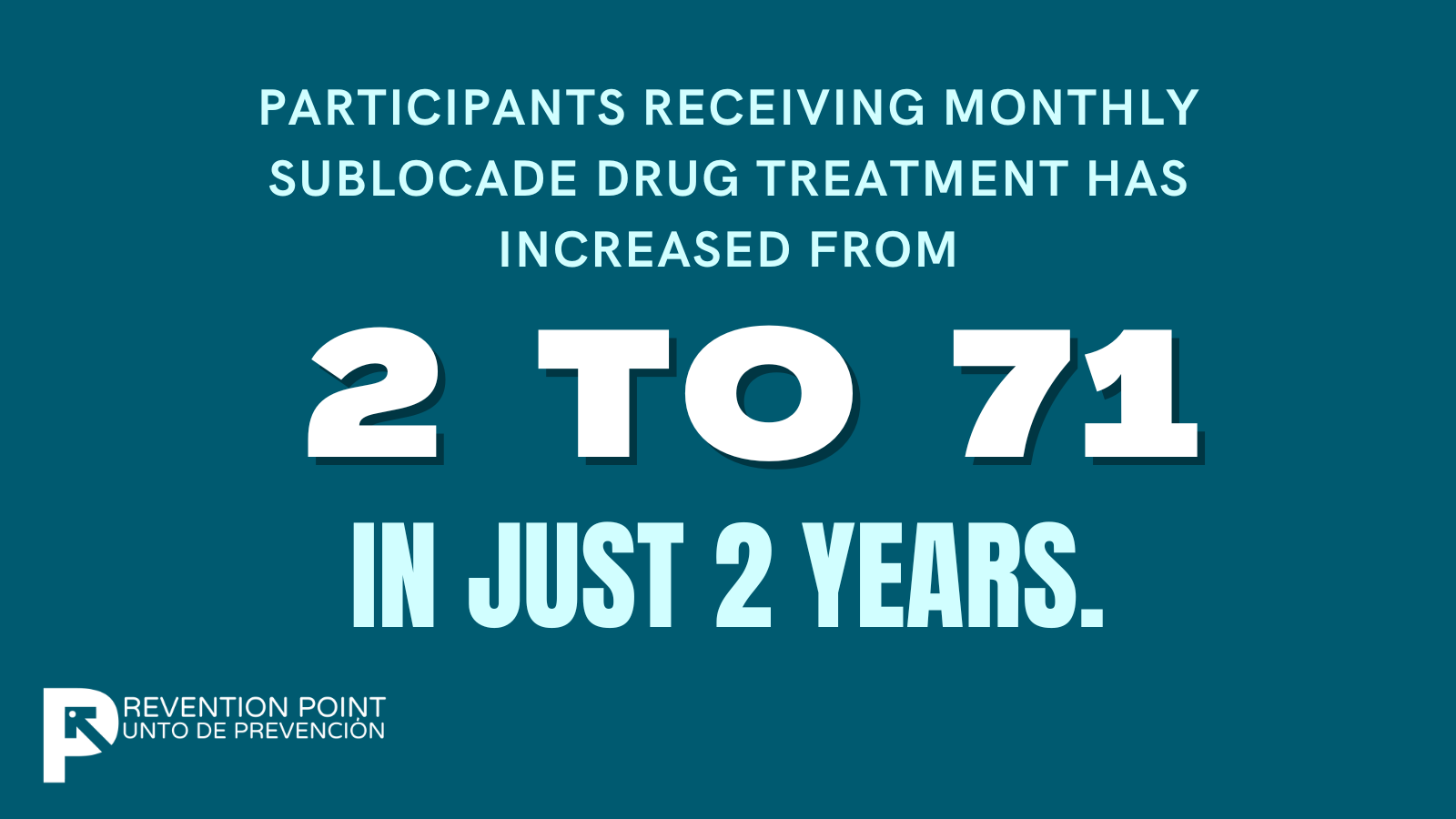
Prevention Point Philadelphia’s (PPP’s) drug treatment clinic helps patients start and adhere to lifesaving medications for opioid use disorder (MOUD). These medications—which at PPP include Suboxone, Sublocade, Brixadi, and Vivitrol—help patients reduce or stop their use of illicit opioids. PPP’s clinic is extremely accessible—doctors are available five days a week, making it possible for a patient to begin treatment the moment they are ready.

Serge-Emile Simpson, MD, is a medical toxicologist and emergency physician practicing at PPP as well as Jefferson-Einstein hospital, where he is the Director of the Division of Medical Toxicology. Dr. Simpson and the other providers involved in PPP’s MOUD clinic spend time with each patient to learn about their priorities, focusing on their specific goals and social determinants of health.
“Depending on their answers I can tailor a medication that will suit each individual's needs,” he says. “I’ve used a variety of medications in clinics and seen them work and fail, depending on the situation. I use my experience to advise patients the best I can.”
The success of Sublocade
One of the clinic’s great successes over the past two years has been its increase in Sublocade prescriptions—an injectable form of buprenorphine that requires a patient to come to the clinic just once a month. Participants receive a financial incentive every time they come back for their treatment.

“We pioneered Sublocade over the past two years and have tremendous numbers now because word spread in the community of people who use drugs,” Dr. Simpson says. “We’re their community providers. They look out for each other, share food and shelter, and keep each other safe.”
"The heart of the clinic"
According to Dr. Simpson, Sublocade and other injectable MOUD require extra paperwork and other bureaucratic obstacles that keep them out of reach for average private care. He credits PPP’s MOUD case management team and certified recovery specialists (CRSs) with making injectable medications feasible at this scale.
"I can have a patient on Sublocade within a week of starting in the clinic which is breathtakingly fast. You can’t do that in other places,” he explains. “You can capitalize on a patient’s readiness for treatment at PPP in a way that you can’t at other MOUD clinics because PPP has a lot of experienced case managers who navigate these waters efficiently.”
Case managers find eligible patients in the community and keep them engaged in treatment. They also ensure that the patient’s insurance is compatible or get them enrolled with insurance if they don’t have it.
“Case managers do all that background work and allow the provider to spend quality time with the patient, and see more patients, because we’re not hung up on the phone doing pre-authorizations,” says Dr. Simpson. “They also do incredible wrap-around work, like helping them find housing, making doctor appointments for other types of medical issues, and connecting them with a number of other resources. That’s just scratching the surface. Case managers and certified recovery specialists are the beating heart of the clinic.”
"Only at Prevention Point”
Providers from Philadelphia’s leading hospitals provide clinical care at PPP throughout the week, which fosters organic knowledge exchange between doctors with diverse expertise.
“Providers come here for the same reason—we’re interested in helping any way that we can and in learning more about substance use disorder. You get a particular kind of curious doctor expanding from their normal practice because they want to learn, and then we just get to talking,” says Dr. Simpson.
PPP providers—which include toxicologists, family physicians, addiction specialists, and infectious disease specialists—bring their expertise to the clinic where they compare notes and practice patterns.
“In an environment like PPP, things get better incredibly fast. It's amazing, this kind of collaborative environment... We help each other get over the gaps in our knowledge really efficiently,” explains Dr. Simpson. “This kind of knowledge exchange can only happen at Prevention Point.”